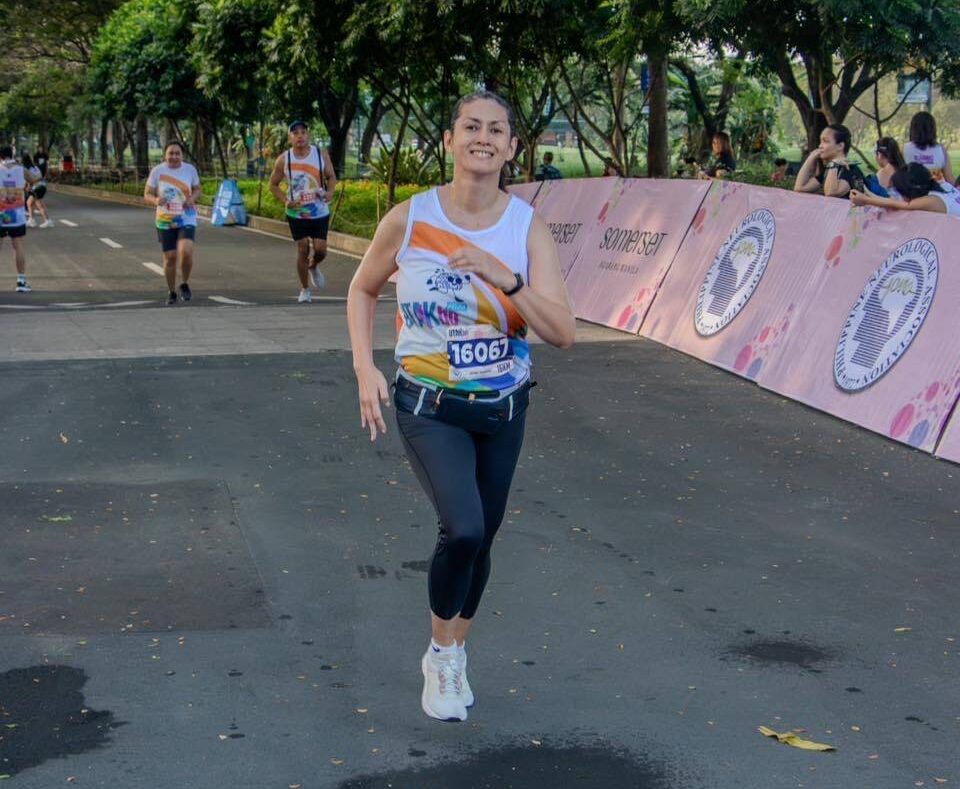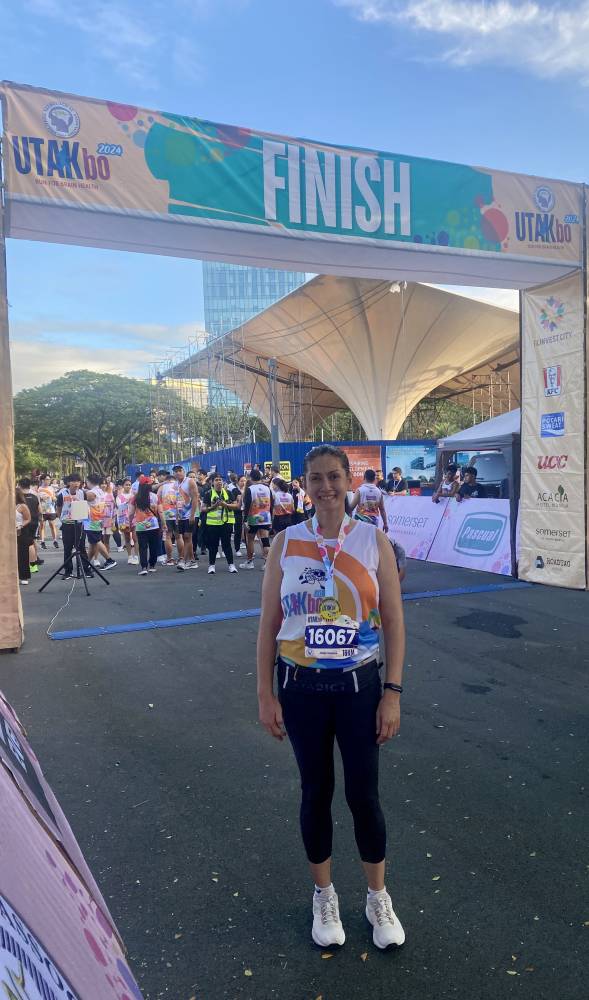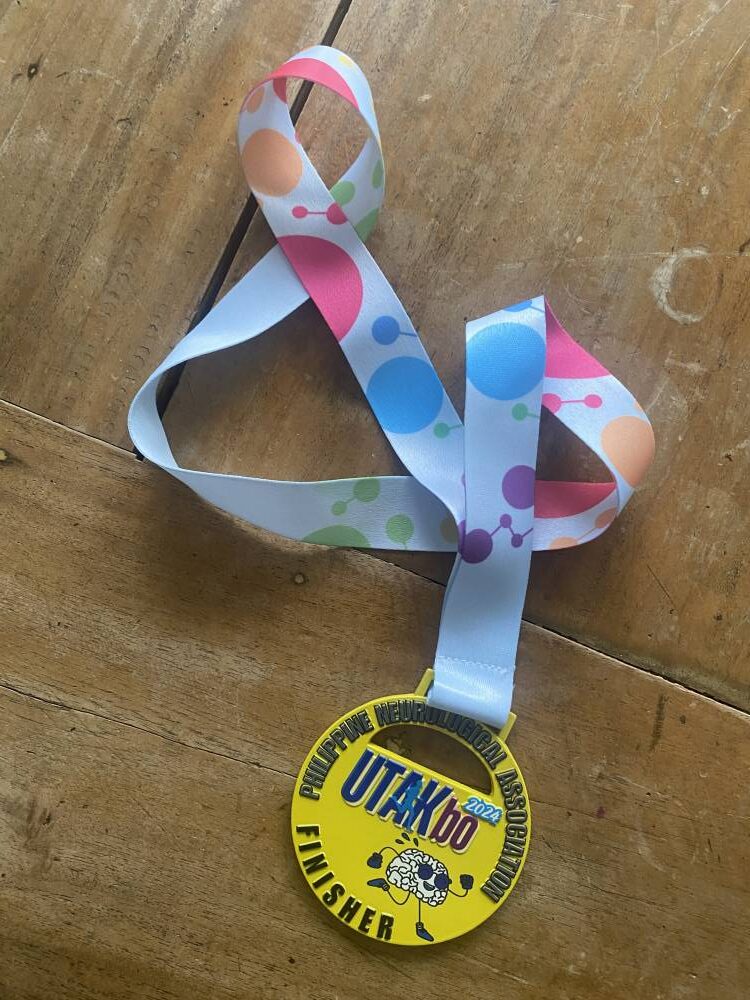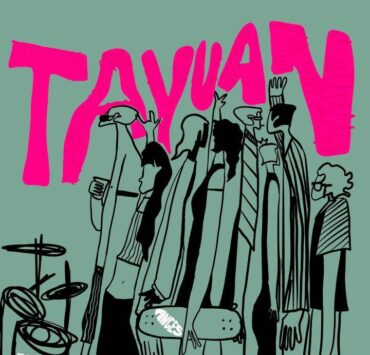Not today, Parkinson’s: Running for brain health

“Run for brain health!” was the tagline that drew me to UTAKbo Run 2024, organized by the Philippine Neurological Association (PNA). As someone with Parkinson’s disease (PD), supporting brain health is close to my heart.
On Nov. 10, despite recent illness and only four-and-a-half hours of sleep, I joined the 16K race—the first 16K I’ve done in 16 years. My return to running started with a 10K in September, and the strength I felt after that race pushed me to keep training.
The PNA has been leading efforts in neurological care in the Philippines, and UTAKbo 2024 was their first organized run. I appreciated their free photo releases for participants, though I noticed some areas for improvement. Unlike other races I’ve joined, the marshals seemed less engaged; some were on their phones instead of cheering us on, which made the atmosphere less encouraging.

Another missed opportunity was the lack of focus on specific brain health topics in the weeks leading up to race day, or even in the hosts’ spiels on stage. For example, during the prerace Zumba warm-up, they could have explained how certain moves like crossing the midline or working out your vocals benefit those with Parkinson’s, making the event more meaningful beyond just fitness.
In future runs, I hope PNA considers adding divisions for athletes with neurological impairments or Special Teams (a mix of able-bodied and disabled athletes) like in Ironman races, which would promote inclusivity and awareness.
Managing symptoms
My history with 16Ks began in 2008 with the One La Salle Cares Fun Run. Back then, I struggled with shin splints and side stitches and had to walk parts of the route. I continued running 10Ks until 2010 but stopped due to knee injuries and bone spurs, which led my orthopedic doctor to advise against running and martial arts.
However, after being diagnosed with PD, I learned that intense exercise is crucial to managing my symptoms. My routine now includes boxing or jiujitsu on Mondays, running three times a week, jiujitsu on Wednesdays and Fridays, taekwondo on Saturdays, weekly dance classes, and light yoga almost daily. This rigorous schedule, combined with a vegan diet, has helped me maintain strength, mobility, and stability.
Despite personal struggles that affected my already fragile emotional state, my neurologist has seen my condition remain stable and even reduced my medication dosage, a rare occurrence for someone over a year into a PD diagnosis. I hope my experience shows others that lifestyle choices can positively impact PD progression.

While I generally move without issue, emotional stress triggers my dyskinesia (uncontrolled movement) or dystonia (muscle contractions). Holding a kicking pad or stopping a flailing arm during training often requires deep concentration. I record my rolls in jiujitsu or trying-hard dance moves and note my bradykinesia (slow, difficult movement), even if in my head I thought I was being smooth.
These episodes show me that, despite my efforts, Parkinson’s will eventually take its toll. Sometimes I burst into tears because I am reminded of how everything I have is borrowed, and that no matter how hard I exercise, Parkinson’s will catch up with me; it’s just a matter of time.
Pushing limits
I often use the hashtag “not today, Parkinson’s” to highlight the moments I beat the cruel dopamine thief at least for a while and keep the symptoms at bay—until the medication that allows me to move wears off and, like Cinderella, my mind and body get wonky again.
In one of my favorite movies, “Gattaca,” Ethan Hawke’s character Vincent overcomes a supposedly genetic disadvantage and beats his genetically gifted brother in a swimming race. He says, “You want to know how I did it? This is how I did it, Anton: I never saved anything for the swim back.”
It’s what I think about when I feel like giving up. I love that quote because it’s a testament to the human spirit. This mindset fuels my daily commitment to train, rain or shine, no matter how I feel.
In training, I push my limits by simulating race conditions without stopping for hydration and running on an empty stomach. The longest I’ve gone without stopping is 12K, so on race day, I took advantage of every hydration station and managed a strong finish, having trained under harsher situations.
Living with PD comes with its challenges. People sometimes say, “At least it’s not cancer,” or, “But you don’t look like you have PD!” because it takes consistent herculean effort. However, PD doesn’t have “one look,” and each day is a battle against symptoms that vary based on dopamine levels, diet, and medication.
Each morning, I wake up ready to fight, uncertain of what the day will bring but determined to keep going. That’s all we can ever control, and maybe my mind and body won’t fail me today.
I know Parkinson’s is a battle I will ultimately lose, but that doesn’t mean I can’t try to fend it off just a little bit longer.

















